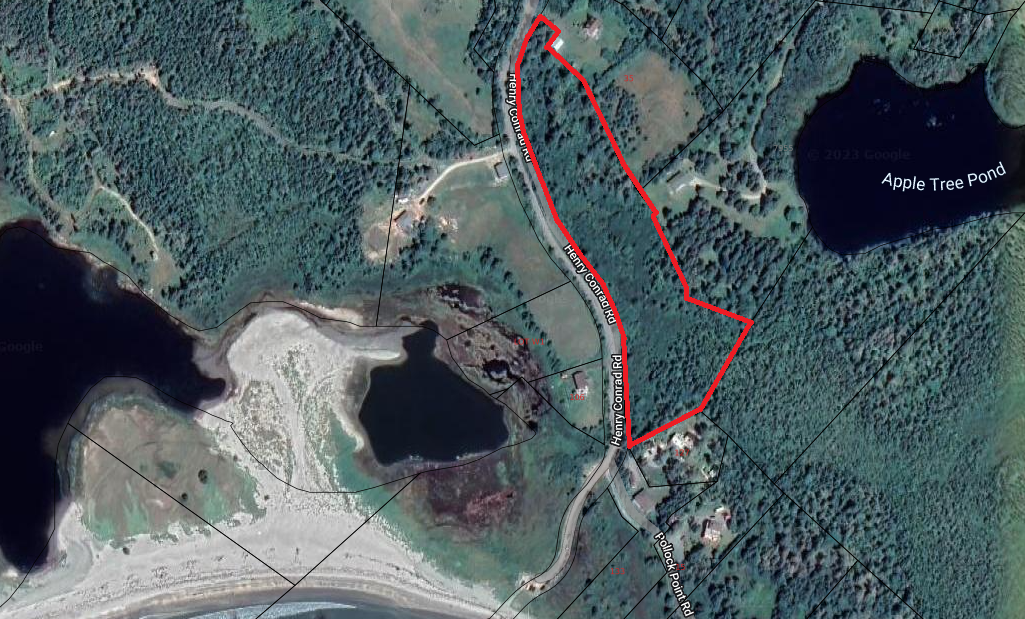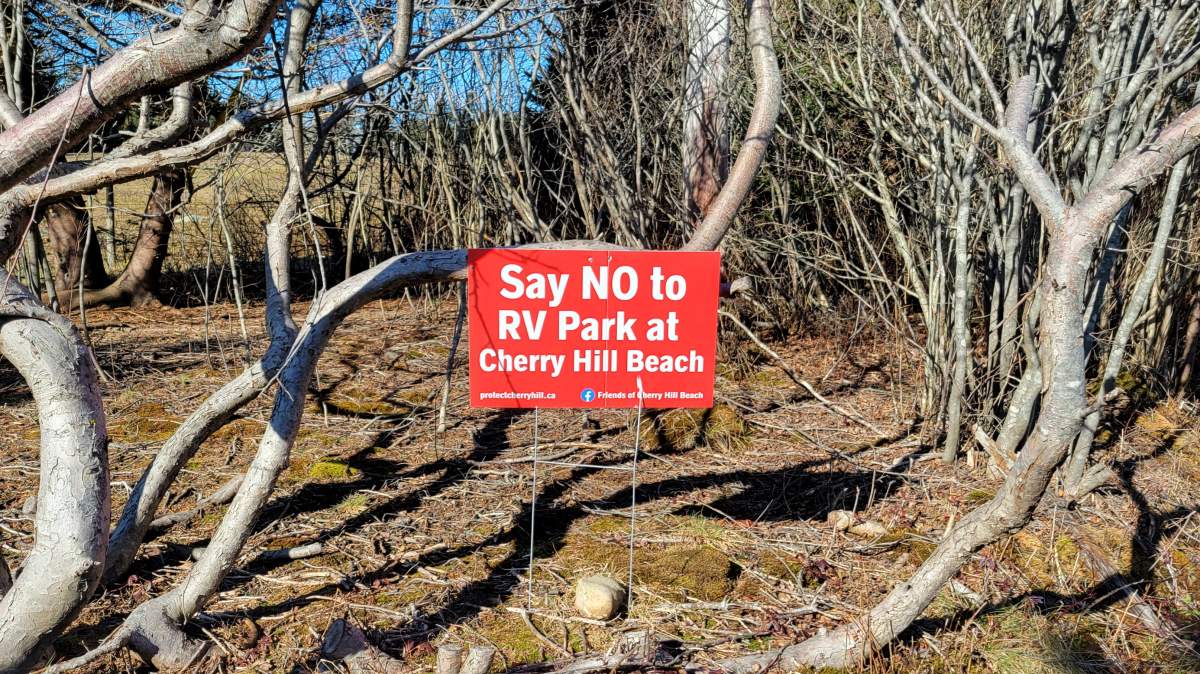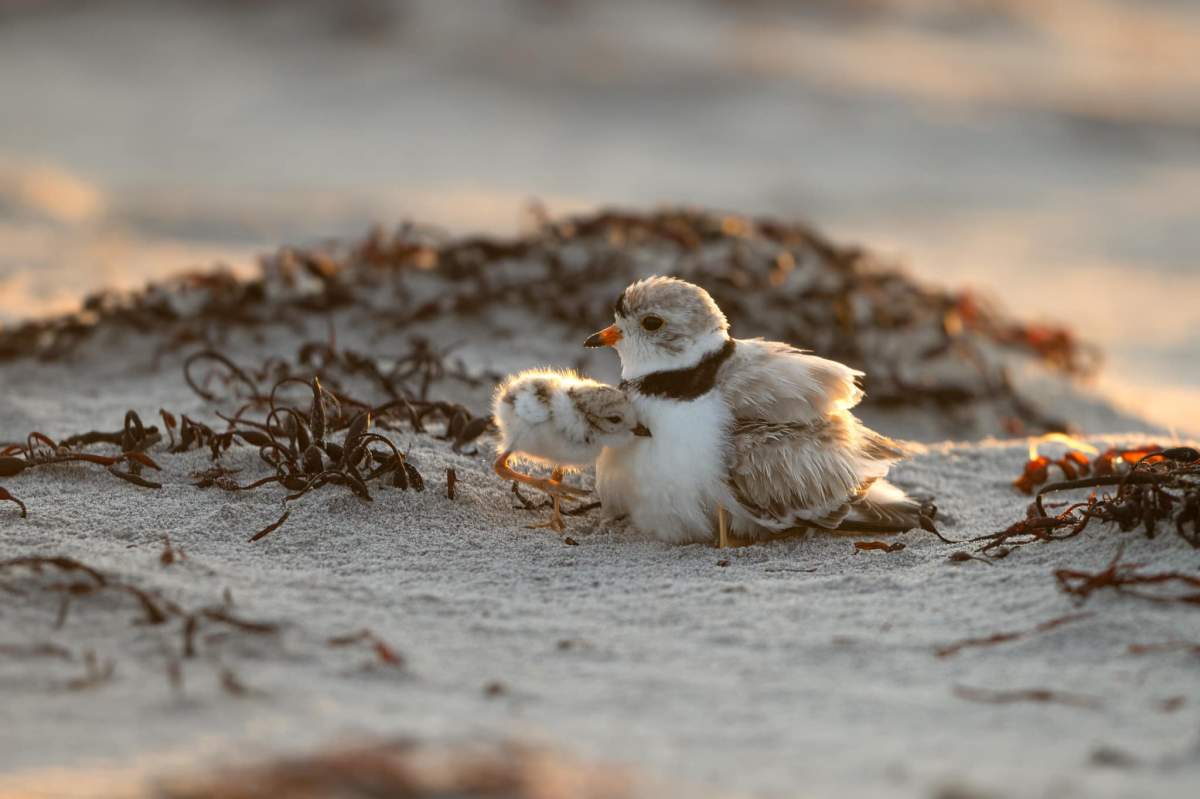Some neighbours of a proposed RV park near Cherry Hill Beach on Nova Scotia’s south shore are pushing back against the planned development, saying it’s not a good fit for the community and could pose risks to a nearby nature reserve.

Steve Howe, a resident of the small community of Cherry Hill in Lunenburg County, is the spokesman for the group Friends of Cherry Hill Beach.
Howe, who lives a stone’s throw from the public beach, described it as beautiful and serene, a place where people can go when they want solitude.
“It’s a beautiful spot, sort of a jewel on the south shore,” he said.
The beach is also home to a nature reserve and is a nesting spot for the endangered piping plover.
The proposed RV park would have room for 12 to 15 RVs and will be located on Henry Conrad Road, a narrow drive connecting Highway 331 to the beach. Its lot begins about 150 metres from the Cherry Hill Beach parking lot.
Howe worries about the potential for increased traffic in the area and how that will impact residents and wildlife.
“Our concern is the impact of the added population, the light noise, the sound noise, the garbage that comes with that many people,” he said.
Friends of Cherry Hill Beach launched a petition to stop the RV park that has more than 5,000 signatures, and a number of bright red signs protesting the park have been put up along Henry Conrad Road.

Howe said the neighbours in the community act as “stewards” of the beach, picking up litter and keeping it as clean as possible.
Noting there are also a number of houses nearby, he said the group is not against development in general.
“We’re not against development, it’s about appropriate development,” he said. “You put RVs in, we have a very narrow road … it doesn’t fit with the community.”
Howe said the group has contacted all levels of government with their concerns.
Carolyn Bolivar-Getson, mayor of the Municipality of the District of Lunenburg, said she has heard from a number of residents in the area who are concerned about the development.

Get breaking National news
“It’s definitely something that they do not feel goes hand-in-hand with the natural environment there,” she said.
Issue highlights ‘gaps’
Bolivar-Getson noted the owners of the land where the RV park is intended to go have done their due diligence and are legally entitled to create the park, as there will be no buildings – so no building permit is required – and the area has no zoning or land-use bylaws.
In fact, just 12 per cent of Lunenburg is zoned. The municipality is currently working on new zoning regulations.
In the meantime, however, there remain “gaps” due to the repealing of a provincial act that set out guidelines for camping establishments, said Bolivar-Getson.
Under the former Tourist Accommodations Act, owners and operators of camping establishments had a number of strict guidelines they had to follow, including provincial licensing and reporting requirements.
The act was repealed in 2020 and replaced with the Tourist Accommodations Registration Act, which does not have the same requirements.
Bolivar-Getson said the municipality recently wrote to the province, asking for it to reintroduce regulations around camping establishments.
“I do believe that – knowing that there were regulations in the past that governed RV parks and campgrounds – I think it’s important that there be something as we move forward as well,” the mayor said.
“I think to bridge that gap is very, very important.”
In a statement, Department of Communities, Culture, Tourism and Heritage spokesperson Susan Mader-Zinck confirmed the letter was received by the province.
“We will respond back to the municipality,” she said.
Mader-Zinck said the new Tourist Accommodations Registration Act requires operators of short-term accommodations to register with the province.
The act aims to “reduce accommodation licensing red tape, ‘level the playing field’ among accommodation operators, and help the province and municipalities better understand and manage short-term rental activity.”
She said under the new legislation, campgrounds are not required to register unless they offer a fixed-roof accommodation, like a cottage, bunk house or motel.
“There are no provincial tourism inspections for accommodations or campgrounds, however they are subject to applicable legislation,” said Mader-Zinck.
“If there is a complaint related to drinking water or wastewater concerns for example, this would sit with (the) Department of Environment. If it is a noise, garbage or other such complaint this would be municipal jurisdiction.”
Leitha Haysom, councillor for District 1 which includes the Cherry Hill area, said the issue has led to a “lot of frustration from residents.”
“I hear that frustration, and I think it speaks to the work we need to do to get that zoning in place and some of that land-use planning,” she said.
Haysom said the issue is “complicated,” as the proposed development is completely legal, but said the concerns raised by the neighbours are valid.
“They really care about their community and the natural asset that’s there,” she said.
“It’s not just motivated by self-interest. I think that there is a genuine concern for the natural environment and recognizing that we’re talking a lot about the impact of coastal development, the impact of climate change, and protecting these natural spaces that we have, and sensing their inherent value.”
Bob Clark, who owns the lot for which the RV park is slated with his wife, declined to do an interview but answered some questions by email.
Clark said the current plan is to rent out 12 to 15 spaces at the RV park between the end of May until Oct. 1. He does not know when they will be ready to lease lots.
Clark said the land has been approved for septic, and they have met with the Department of Environment, “and there are no issues developing on the land.” The department confirmed this in an email.
He also said they do not feel like increased traffic will be a concern for the beach, as the entrance to the park will be closer to the other end of the road and those visiting the park will be able to walk to the beach.
“Cherry Hill is a public beach. People that choose to lease land from us I am sure will be respectful, follow the rules … and will be invested in the beach no different than the ones that own properties there,” said Clark.
Clark alleged that he and his wife have been “bullied, judged, shamed and harassed” by the neighbours opposed to the RV park.
“We do not feel it is right to tell someone that they can not do what they want with their land,” he said.
In response, Howe said the group encourages everyone to “take the high ground morally and legally” as they’re fighting the system and not the people.
Coun. Haysom noted that this is a “contentious issue” that has been challenging for a number of people in the area.
She said it points to a need to engage with the community and ensure they have appropriate zoning and land-use bylaws in place going forward.
“It’s important that we acknowledge that we have to continue to live in these communities together. These issues will always come up. If it’s not a proposed development, it’s something else,” she said.
“So I hope that there are lessons that the whole community can take away from how we can choose to come together and find common ground, wherever possible.”















Comments
Want to discuss? Please read our Commenting Policy first.